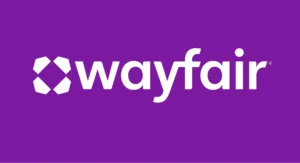Top Interesting Facts About IPO Allotment
By TIMEOFINFO
December 20, 2022
Update on : January 18, 2023

Initial public offerings (IPO) allotment has been a topic of keen interest for investors for a long time. It is of the utmost importance to understand the IPO allotment process and its implications. The following article explores the top 10 interesting facts related to IPO allotment. It provides an overview of the entire IPO allotment process, what some of the different types of allotment scenarios are, and how they all work. The article will also look at some details related to the upcoming IPO that is particularly important to investors.
An IPO allotment is the process through which a company issues shares during an initial public offering. It includes all the steps from submitting an application to the allotment and refunding unsuccessful bids. The issue price is determined by the company and is subject to change depending on the demand for the securities. The allotment process is an integral part of the overall IPO process. It determines how much money the company can raise in an offering and what investors participate in.
Different Types of Allotment Scenarios
Two primary types of allotment scenarios can occur when a company undertakes an IPO. The first is a fixed price scenario where the company sets a fixed price for the offered shares. This means that all investors who participate in the offering will receive the same price per share. The second is a competitive bidding scenario, where investors can bid on the number of shares they want to purchase. The company then determines which bids will be successful and how much each successful bidder will be allotted.
Competitive and Fixed Price Bidding
In a competitive bidding scenario, the price of the shares is determined by the market and the investor’s appetite for the stock. The company issues shares at the highest price, which still results in overall demand being met. This method helps companies to get the best return from their investments. In a fixed price scenario, the company sets a fixed price for the offering, and all investors participating in the offering receive the same price per share.
Pricing Impact on Allotment
The pricing of the shares has a significant impact on the size of the allotment. If the price per share is too low, the allotment size may be too large. This can result in unsold shares and a lack of liquidity. Conversely, if the price is set too high, demand may not be met, and the company may not be able to raise the capital it needs.
Lot Allotment
In a fixed-price offering, a lot allotment process is used to determine how many shares each investor will receive. Generally, the lots are allocated on a first-come, first-served basis. Investors who bid for more than the maximum lot size allowed for that particular offering will have their bids rejected. The size of the offering and the demand for the shares determines the lot size.
Price Band Mechanism
The price band mechanism is used in competitive bidding scenarios to allow investors to submit bids within a certain range. The price band helps to ensure that investors do not submit too-low bids, as this could result in an overall underpricing of the shares. The price band also helps to protect the company from any potential over-subscription of the offering by allowing the company to set a minimum price for the offering. This gives the company more control over how much money it raises in the offering.
Free-From Pricing
Free-from pricing is a pricing method that allows the investors to bid a price independent of the share’s market price. In this method, the investors submit their bids without knowing the market price and the bids are put into a lottery where a predetermined number of bids are selected. This method helps to ensure that the investors do not submit too low of bids to increase their chances of success.
Verification of Allotted Shares
Once the allotment process is complete, the company will verify the allotted shares. This is done to make sure that the investors who have been allotted the shares are able to pay for them. The company will also verify that the price at which the shares have been allotted is satisfactory to the investors.
Allotment Negative Considerations
When allotting shares in an IPO, there are some negative considerations that must be taken into account. If the allotment is not done properly, it could lead to a lack of liquidity, unsold shares, underpricing or overpricing, and dissatisfied investors. Therefore, it is important for the company to be aware of the potential issues that could arise from an IPO allotment before the process begins.
Conclusion
IPO allotment is an important part of the overall IPO process. It determines how much money a company can raise in an offering and which investors receive the allotted shares. Understanding the intricacies of the IPO allotment process is crucial for investors, as it can lead to better returns and fewer issues. This article provides a comprehensive overview of the top interesting facts about IPO allotment, from the types of allotment scenarios available to the potential negative considerations that investors must be aware of.
















